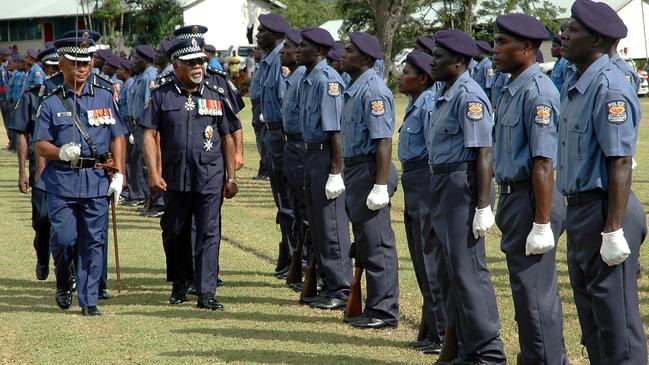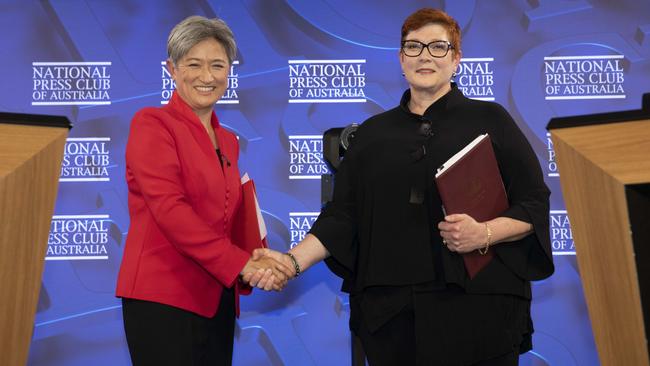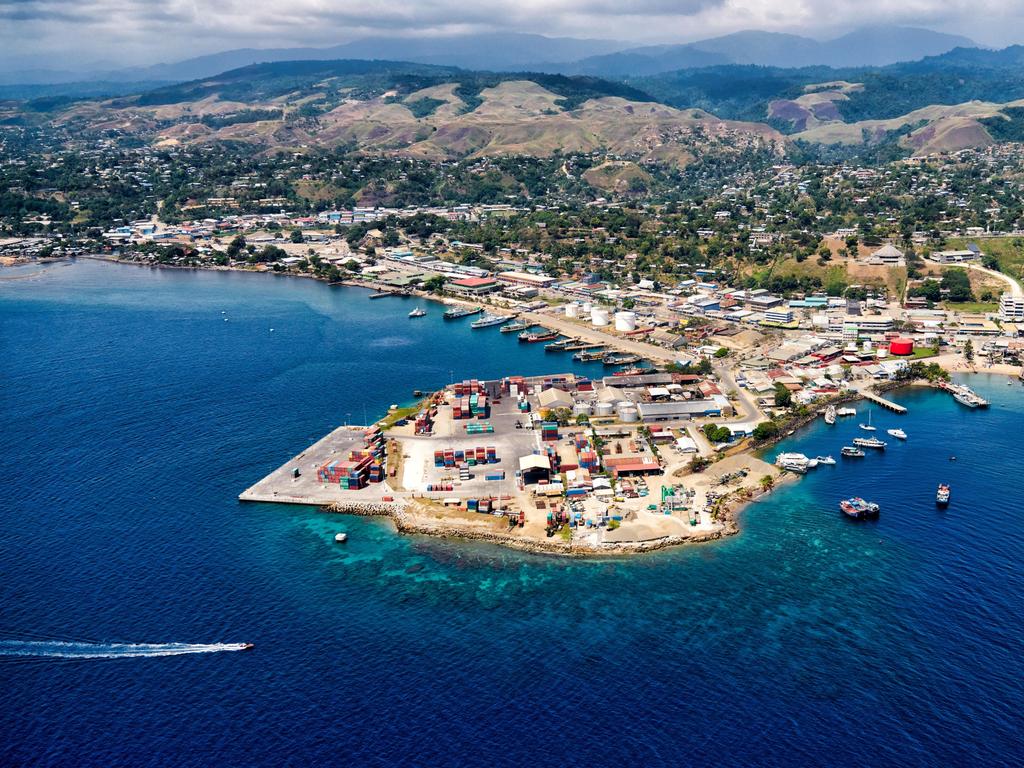Beijing woos PNG with security support as fears of poll unrest rise
China is pushing to expand its security support to the Pacific, offering help to PNG prevent violence during upcoming elections.

Beijing is pushing to expand its security support to the Pacific, offering help to Papua New Guinea to prevent political and ethnic violence during its upcoming national elections.
The Weekend Australian has learned from PNG sources that the Chinese embassy in Port Moresby has been in talks with PNG officials over the proposed support, which Chinese Foreign Minister Wang Yi hopes to announce during a visit to the capital on June 2.
It’s unclear if the assistance would be in the form of funding, or whether China would provide arms and protective equipment to PNG security personnel.
Mr Wang will visit Solomon Islands by mid-next week for a ceremonial signing of China’s controversial new security agreement with that country, and is expected to visit Fiji and potentially one other destination before heading to PNG.
The trip will pile further pressure on the winner of Australia’s federal election, who will confront growing Chinese efforts to lock in Pacific countries as economic and security partners.
It comes after The Australian revealed on Friday cabinet’s national security committee rejected a push last year by Foreign Minister Marise Payne for Australia to double its Pacific aid funding to counter rising Chinese influence.

Senator Payne presented the revised Pacific Step-up strategy to cabinet colleagues in November, arguing Australia needed to dramatically increase its support for regional partners to prevent them being co-opted by Beijing. But it was rejected on the grounds it was too expensive, and would not have the desired effect.
Campaigning in Perth on Friday, Scott Morrison told reporters that pouring more foreign aid into the Pacific would not keep China at bay.
“You're suggesting that if you just double funding in the Pacific, then somehow the Chinese government doesn’t have any influence … or won’t be successful in seeking to coerce or exert its influence in the southwest Pacific,” the Prime Minister said.
“That's your assumption. And that assumption doesn’t hold.”
Mr Morrison refused to confirm or deny a leak, and pushed back against suggestions any of his cabinet colleagues had briefed against him in the final days before the election. “The national security committee is not just attended by ministers, it's also attended by officials,” he said.
Labor foreign affairs spokeswoman Penny Wong said the “extraordinary” leak showed the government had failed to ensure Australia remained the partner of choice” in the region”.
“How do we ensure that we secure our region? That's the key strategic question. And on this, Mr Morrison dropped the ball and Australian security is paying the price,” she told ABC radio.
The planned offer of security support to PNG would likely be welcomed by the Royal Papua New Guinea Constabulary, which is desperately under-resourced to deal with violence during the July 2-22 election period. The head of PNG’s Correctional Service, which will assist with election security, said recently that the agency “may not be able to buy protective gear, especially body armour and arms, because we do not have enough funds”.
According to the Australian National University’s Nicole Haley, PNG’s 2017 national elections were marred by violence, insecurity and widespread fraud.
Australia is providing about $30m in support towards the conduct of PNG’s elections, while Australian Defence Force aircraft and about 140 personnel will assist with logistics and planning.
Some members of PNG’s Chinese community are said to be nervous about Mr Wang’s visit so close to the elections, fearing it could be construed as interference in the country’s political process, and cause a backlash against their businesses.
Lowy Institute senior fellow for East Asia Richard McGregor said Mr Wang’s trip was “an emphatic statement of China’s ongoing interest in the region”.
“It is mainly a political statement of interest (by China), and returning serve not just to Australia but, frankly, more importantly to the US,” he said.
He said the security pact with Solomon Islands would be the most significant agreement Mr Wang was likely to sign during the trip, but there could be a range of other deals signed.








To join the conversation, please log in. Don't have an account? Register
Join the conversation, you are commenting as Logout